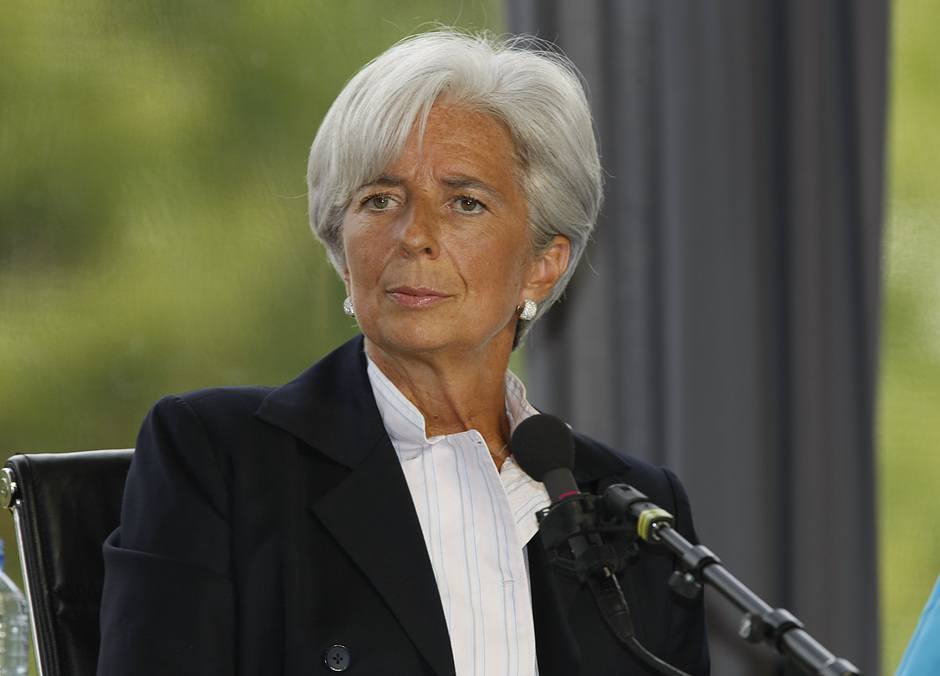Created
: 2024.11.21














![]() 2024.11.21 09:34
2024.11.21 09:34
The European Central Bank (ECB) Governing Council member Yannis Stournaras said on Wednesday that the Eurozone is on the cusp of sustainably reaching 2% inflation, putting the onus on officials to avoid undershooting that goal, per Bloomberg.
"Inflation is now more likely to converge sustainably to the target sooner than earlier expectations -- by the beginning of 2025 instead of the last quarter, as was anticipated in the most recent ECB projections."
"Our policy focus may have to increasingly take account of economic conditions so that we don't undershoot our inflation objective."
"Although we have not had any indications of a hard landing, the markets are extremely sensitive to disappointing growth readings."
"If negative surprises for growth come in and we fail to unwind our restrictive monetary-policy stance at the appropriate pace, unnecessary market turbulence could be induced, negatively impacting economic and financial stability."
"The September reading of inflation at 1.7 percent should be viewed as both a success and a wake-up call."
"A policy-rate path that remains too restrictive for too long could induce an undershooting of our inflation target over the medium term and impede growth. Should that occur, we would risk damaging our credibility."
"An escalation in trade tensions between major economies through tariffs and retaliation could create chaos in international trade and weigh on confidence and economic activity at the global level."
At the time of writing, EUR/USD is trading 0.04% higher on the day to trade at 1.0545.
The European Central Bank (ECB) in Frankfurt, Germany, is the reserve bank for the Eurozone. The ECB sets interest rates and manages monetary policy for the region. The ECB primary mandate is to maintain price stability, which means keeping inflation at around 2%. Its primary tool for achieving this is by raising or lowering interest rates. Relatively high interest rates will usually result in a stronger Euro and vice versa. The ECB Governing Council makes monetary policy decisions at meetings held eight times a year. Decisions are made by heads of the Eurozone national banks and six permanent members, including the President of the ECB, Christine Lagarde.
In extreme situations, the European Central Bank can enact a policy tool called Quantitative Easing. QE is the process by which the ECB prints Euros and uses them to buy assets - usually government or corporate bonds - from banks and other financial institutions. QE usually results in a weaker Euro. QE is a last resort when simply lowering interest rates is unlikely to achieve the objective of price stability. The ECB used it during the Great Financial Crisis in 2009-11, in 2015 when inflation remained stubbornly low, as well as during the covid pandemic.
Quantitative tightening (QT) is the reverse of QE. It is undertaken after QE when an economic recovery is underway and inflation starts rising. Whilst in QE the European Central Bank (ECB) purchases government and corporate bonds from financial institutions to provide them with liquidity, in QT the ECB stops buying more bonds, and stops reinvesting the principal maturing on the bonds it already holds. It is usually positive (or bullish) for the Euro.
![]()
Created
: 2024.11.21
![]()
Last updated
: 2024.11.21

FXStreet is a forex information website, delivering market analysis and news articles 24/7.
It features a number of articles contributed by well-known analysts, in addition to the ones by its editorial team.
Founded in 2000 by Francesc Riverola, a Spanish economist, it has grown to become a world-renowned information website.
We hope you find this article useful. Any comments or suggestions will be greatly appreciated.
We are also looking for writers with extensive experience in forex and crypto to join us.
please contact us at [email protected].
Disclaimer:
All information and content provided on this website is provided for informational purposes only and is not intended to solicit any investment. Although all efforts are made in order to ensure that the information is correct, no guarantee is provided for the accuracy of any content on this website. Any decision made shall be the responsibility of the investor and Myforex does not take any responsibility whatsoever regarding the use of any information provided herein.
The content provided on this website belongs to Myforex and, where stated, the relevant licensors. All rights are reserved by Myforex and the relevant licensors, and no content of this website, whether in full or in part, shall be copied or displayed elsewhere without the explicit written permission of the relevant copyright holder. If you wish to use any part of the content provided on this website, please ensure that you contact Myforex.
Myforex uses cookies to improve the convenience and functionality of this website. This website may include cookies not only by us but also by third parties (advertisers, log analysts, etc.) for the purpose of tracking the activities of users. Cookie policy